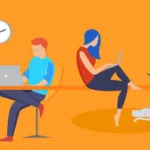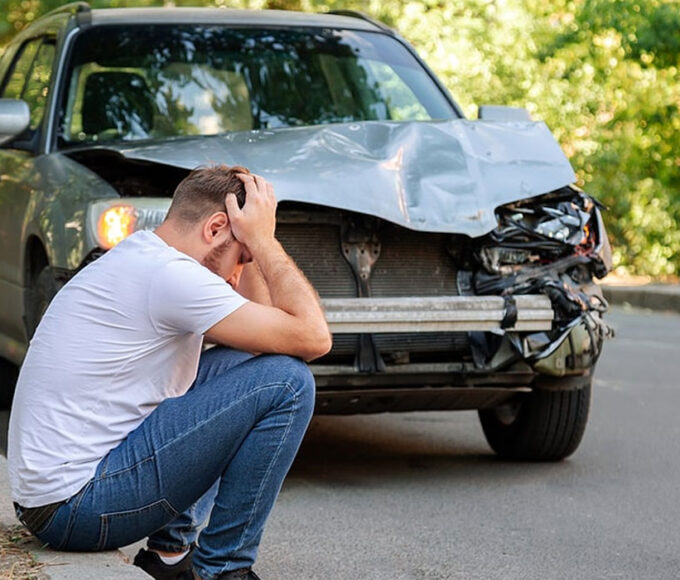Experiencing a car accident is traumatic, but what happens when it leaves you with a head injury?
The aftermath can be a confusing, painful journey. Chances are, you’re grappling with symptoms that are hard to explain, and you’re unsure about the future.
This guide is here to shed light on the long-term effects of a head injury from a car accident. We offer expert guidance, resources, and support to help you navigate this challenging path.
There’s more to your story than just the injury; let’s walk through it together.
Cognitive Impairment
One big change you might notice after a head injury from a car accident is in how you think, learn, and remember. This is known as cognitive impairment. You might find it tougher to focus on tasks or remember things you used to know.
Also, problem-solving could become a bit of a challenge. Even understanding and using language might feel different. These changes can be frustrating and might make everyday tasks more difficult.
Emotional and Behavioral Changes
Car accident injuries can also lead to changes in your emotions and behavior. You might feel moody or get upset more than before. Some people might notice that they are more anxious, or feel down a lot of the time.
These changes can be scary, but it’s important to remember that they are a common part of recovering from a head injury. There are resources available, like therapy, counseling, and support groups. These can help you understand these changes and find ways to cope.
Chronic Headaches
Headaches that keep coming back can be a common problem after a head injury from a car accident. They are often called chronic headaches. You might feel pain in one part of your head, or it may feel like the pain is all over.
These headaches can sometimes be very intense and last a long time. It can be hard to do everyday things when you have a headache like this. But there are ways to help manage the pain.
You might find relief through rest, relaxation techniques, or by taking medicine prescribed by a doctor. Also, remember to talk to your doctor or a trusted adult about your headaches. They can help you find the right kind of help and support.
Sensory Disturbances
After a head injury from a car accident, you may also notice changes in how you feel or perceive the world around you. This is called sensory disturbance. You might find that your senses of smell, taste, touch, vision, or hearing are not the same as before.
For example, bright lights might bother your eyes, or loud sounds could feel uncomfortable for your ears. These changes can be confusing but don’t worry, they’re a common part of the head injury aftermath.
Motor Skill Impairment
Motor Skill Impairment is another long-term effect of head injuries from car accidents. It can make moving around or using your hands harder than before.
For example, you might find it difficult to hold a cup, type on a keyboard, or even walk without stumbling. This is because a head injury can affect the parts of your brain that control your movements. It might feel frustrating, but remember, it’s not your fault and you’re not alone.
Sleep Disorders
Sleep disorders can be another long-term effect of car accidents. You might have trouble falling asleep, or wake up a lot during the night. Some people feel sleepy all the time, even if they get a full night’s sleep.
Others have bad dreams or nightmares about the accident. These sleep problems can make you feel tired, grumpy, or have a hard time thinking clearly.
Talking to a doctor or a sleep specialist can help you find ways to get better sleep. They can suggest things like changing your sleep habits, using special pillows, or taking medicine.
Plus, support groups can give you tips and let you share your feelings with people who understand. Remember, it’s okay to ask for help. Good sleep is important for healing, so don’t ignore these problems!
Seizures
A seizure is like an electrical storm in your brain. Sometimes, people who’ve had a head injury from a car accident can start having seizures. This can be pretty scary. You might feel strange before it happens.
During a seizure, your body may shake or jerk uncontrollably, you might stare into space, or you may not be able to move at all. After it’s over, you might feel tired or confused.
But don’t worry, doctors can help you control seizures with medicine. Support groups can also help you by giving you a chance to talk about your experiences and learn from others who are going through the same thing.
Long-Term Psychological Impact
This means that you might feel different or think different thoughts than before the accident. Some people might feel scared, anxious, or sad for a long time.
Some might not feel like doing things they used to enjoy. Others might keep thinking about the accident, even when they don’t want to.
This can be very hard, but remember, it’s not your fault. And you don’t have to face it alone. Some people can help, like therapists or counselors.
They are trained to help you understand and manage these feelings. Talking to them can make things better.
Legal Challenges and Complications
After a car accident, you might face legal issues. This can be hard, especially when dealing with a head injury.
To make it easier, you may need to talk to a lawyer. They can help you understand your rights.
You might also have to deal with insurance companies. They might ask lots of questions about the accident and your injury. Sometimes, they might even challenge your claims.
Keep in mind that there are experts who understand common car accident injuries in Tucson and can help you. With the right support, you can get through these legal challenges. Remember, you’re not alone on this journey.
Dealing With the Long-Term Effects of Head Injury From Car Accident
Enduring a head injury from car accident can be tough and the journey to recovery is long. But remember, you’re not alone. There is support available to help you through every challenge that comes your way.
With the right approach, you can overcome the challenges of a head injury and lead a fulfilling life. Never hesitate to reach out for help and support as you navigate this journey. Let’s take care of our head injuries for a healthier, happier future.
For more helpful blog posts like this one, visit the rest of our site!












